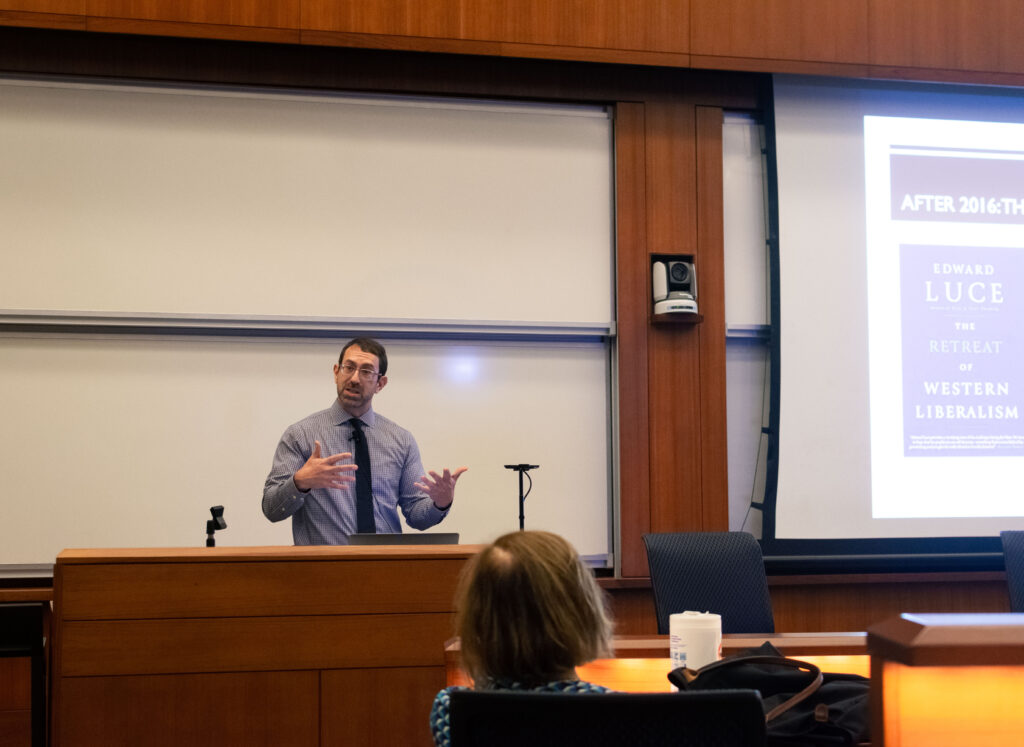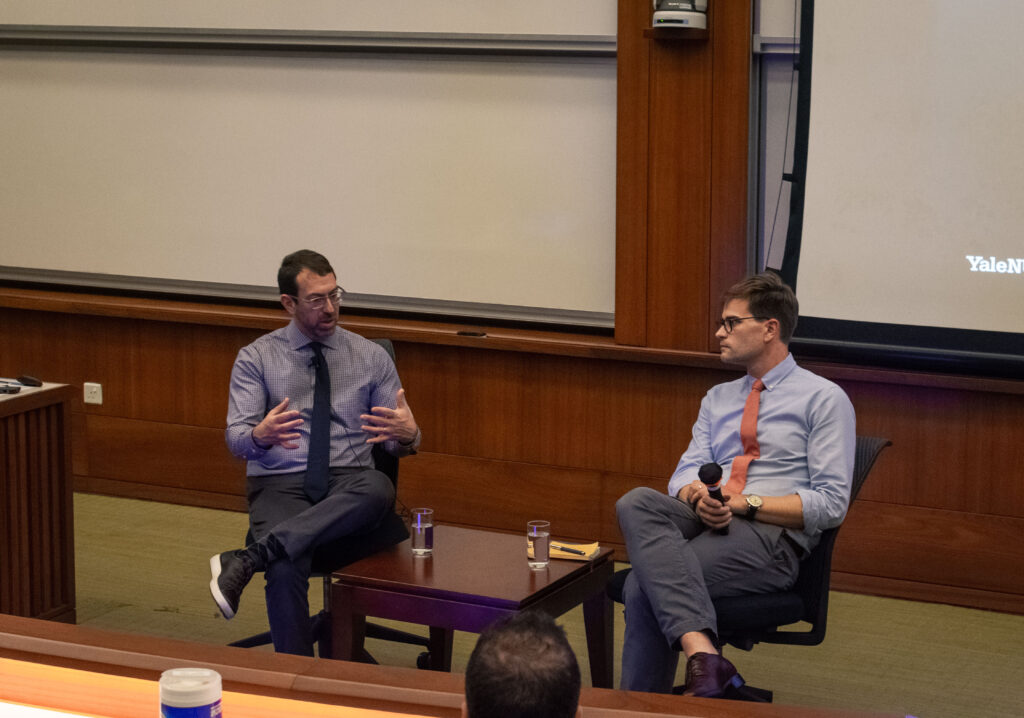Professor Samuel Moyn explores liberalism in post-Cold War era
Public lecture discusses the evolution of liberalism especially in light of the Cold War period

On 7 March 2024, Professor Samuel Moyn, Chancellor Kent Professor of Law and History at Yale University, delivered a talk titled ‘Saving Liberalism from Crisis’ as part of the Yale-NUS Lecture on Global Affairs series. In his talk, Prof Moyn explored key themes from his book, Liberalism against Itself: Cold War Intellectuals and the Making of Our Times. This includes how liberal intellectuals of the Cold War era have transformed liberalism, but left a disastrous legacy for our time.
Prof Moyn began his talk by comparing the different definitions of liberalism. Author of the book Why Liberalism Failed (Yale University Press, 2019), Patrick J. Deneen adopted a view that liberalism is the “political philosophy of modernity” which originated 500 years ago and that liberal frameworks “unleash people from any highest life, to choose their own”, isolating individuals from the community.
Prof Moyn then presented a contrasting narrative from historians who argued that liberalism was not just about individual freedom against the community and the state, but rather a collective project of creating a free community of equals. Prof Moyn challenged conventional notions of liberalism’s origins and goals, contending that its evolution was particularly significant in the 19th century. He argued that liberalism emerged as a response to the French Revolution, with an aim to institutionalise the principles of freedom and equality initiated by the revolutionary political project.
Prof Moyn went on to delve into his main argument of how liberalism is facing a crisis as a result of the long-lasting effects of Cold War liberalism. This saw liberals changing in the middle of the 20th century, rejecting parts of their own tradition, focusing more on individual freedom against the state rather than progressive reforms. In response to challenges faced by liberalism today, Prof Moyn opined that liberals have doubled down on Cold War fears, such as fascism, through a rhetoric of “saving democracy” rather than critically examining their history or offering a compelling vision to voters. Prof Moyn suggested liberalism’s future depends on rediscovering alternative strands within their own tradition. He pointed to alternatives like the 19th century progressivism which emphasised institutional progress over time, New Deal liberalism under Franklin Roosevelt which supported reinventing the welfare state, and the egalitarian views of thinkers like John Rawls. By re-engaging with these alternatives, Prof Moyn argued that liberals can challenge the narrow definitions that emerged post-Cold War.

During the question-and-answer session, attendees seized the valuable opportunity for a thought-provoking discussion. When asked about the process behind formulating the central thesis of his book, Prof Moyn spoke about the inevitable temptation to accentuate differences between 19th century and Cold War liberals, emphasising the importance of acknowledging both similarities and differences. Posed with a question on whether liberalism in the United States has failed and if the heart of liberalism has moved back to Continental Europe, he agreed that some elections in Europe may have suggested this but no one should have a “proprietary relationship with liberalism” and that it should be adapted wherever it is suitable.
Shao Ming Lee (Class of 2024), a Philosophy, Politics and Economics major, found the talk enlightening.
“The talk challenged my pre-existing views on liberalism. It’s also very relevant to my personal goals because I am going to graduate school to study political science. This is the kind of political thought I want to explore – challenging the mainstream, and finding new ways to reframe concepts which we take for granted.”
Watch the full talk here:





